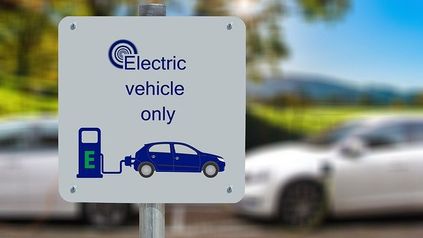The eagerly anticipated British Energy Security Strategy Policy Paper was published by the Department for Business, Energy & Industrial Strategy on 7 April 2022 (the "Paper"). The Paper states that the government will speed up determination times for offshore wind projects, change planning rules to ensure the prompt implementation of solar energy projects and review the "planning barriers" constraining household energy developments.
There has been much written about the present plight of the British household. Column inches have been filled with stories about Brits struggling to pay for their energy consumption and have dominated the press in recent weeks. Household energy bills rose on 1st April as the Energy Price Cap was increased by 54% and could do so again, up to as much as £3,000 a year, in October when the cap is reviewed again.[1]
What has caused this phenomenon? Are we paying it forward, subsidising our conversion to a green future after the UK government set into law the world’s most ambitious climate change target, to cut our emissions by 78% by 2035 compared to 1990 levels[2]?
Unfortunately not. The BBC article "Why are power bills going up?[3]", published on 29 March 2022, addressed the three reasons why wholesale energy prices have gone up: A cold winter in Europe last year increased demand and diminished gas reserves, hot weather in Asia driving up air condition demand and "a number of geopolitical issues", one might suppose that this is describing Russia's invasion of Ukraine on 24 February 2022 quite lightly.
Therefore, against the backdrop of: extremely high prices for fossil fuels, legally enshrined emissions targets, increasing societal environmental pressure and concerns about energy security, the government released this Paper with the goal of increasing the UK's energy independence and, in the words of Boris Johnson in the foreword, "We’ve got the ambition, we’ve got the vision – and, with this plan, we’re going to bring clean, affordable, secure power to the people for generations to come"[4].
Nuclear
The Paper contains an ambition to deliver up to eight new nuclear reactors before 2030, including two at Sizewell in Suffolk.
The government wants nuclear energy to supply 24 gigawatts (GW) of electricity by 2050 - around 25% of the UK's predicted energy demand.
The UK currently has 15 reactors that can supply about 20% of demand - with most due to cease operation before the end of the decade.[5]
Wind
Offshore wind is a big part of the government's plans - with a new target to generate 50GW of energy by 2030 (that’s about 75% of the UK's estimated energy demand by 2050 coming from domestic wind and nuclear) up from a previous commitment to 40GW and almost five times what exists today.
The Paper aims to amend the Planning Act 2008 to create shorter examination timescales and create a “fast-track consenting route for priority cases” that meet quality standards. The government has vowed to relax planning rules to speed up the approvals process from four years to one, and set up a fast-track approvals process for "priority" projects in order to streamline a process, that when planning, consent and construction are included, takes an average of 13 years.[6]
However, the government has pledged it will not make "wholesale changes" to planning laws in England for onshore sites, which were tightened in 2015. Instead, it will consult a "limited number of supportive communities" about hosting new sites, in exchange for guaranteed discounts on energy bills.
The Prime Minister said: “We’re not going to try and turn back the clock to the days when we choked our streets and our atmosphere with filthy fumes and ever-rising levels of climate-imperilling carbon dioxide. Instead, we’re going to take advantage of Britain’s inexhaustible resources of wind and, yes, sunshine"
Solar
The Paper contained an ambition, using the loose phrasing of "we expect to increase the UK's current 14GW solar capacity fivefold by 2035".
Planning laws in England will be reviewed to promote the development of new solar farms on non-protected land. A consultation will also look at how to make it easier to put solar panels on rooftops, including on public buildings.
Hydrogen
The paper contains a target to double UK hydrogen production to 10GW by 2030.
Households
The government promised a review of “practical planning barriers” by the end of 2022 for households looking to install energy efficiency measures and a goal of 600,000 heat pump installations per year by 2028.[7]
Conclusion
When the government set into law the sixth Carbon budget on 20 April 2021, not only did it make the legal commitment to cut emissions by 78% by 2035 compared to 1990 levels, but it enshrined a responsibility to bring the UK more than three-quarters of the way to net-zero by 2050. When viewed alongside the commitments of this Paper, the green energy future of the UK appears to be in good health.
However, it can be argued that these developments are not sufficient to achieve the aforementioned legislative targets. None of the G20 countries are set to meet their emissions reduction targets, in line with the Paris Agreement, according to analysis by risk consultancy Verisk Maplecroft [8] and the Environmental think tank Green Alliance estimates that the UK will need to spend £44bn a year for the next three years in order to get back on track – more than twice the $21bn currently pledged by the government.
The question, therefore, appears to be: will it be the work of the government, using budgets and papers like this one, that meets the UK's net-zero commitments? Or, does the responsibility actually lie with the British people, concurrently encouraged by both legislative and financial incentives and a swelling social desire to reduce our emissions and secure the country's future? All of this is set against the backdrop of rising energy bills and a desire for energy security. Or is a combination of both the actions of the government and the British people required to ensure that the UK meets its emissions targets and secures our green future?
Resources
The Paper
https://www.gov.uk/government/publications/british-energy-security-strategy/british-energy-security-strategy#energy-efficiency
Secondary
1. Planning Resource - Government energy strategy promises faster offshore wind consents and solar planning changes - 7 April 2022
https://www.planningresource.co.uk/article/1752385/government-energy-strategy-promises-faster-offshore-wind-consents-solar-planning-changes?bulletin=planning-daily&utm_medium=EMAIL&utm_campaign=eNews%20Bulletin&utm_source=20220407&utm_content=Planning%20Resource%20Daily%20(275)::www_planningresource_co_uk_art&email_hash=
2. UK Government – Energy trends March 2022
https://assets.publishing.service.gov.uk/government/uploads/system/uploads/attachment_data/file/1064799/Energy_Trends_March_2022.pdf
3. FT - Cutting usage is the Key to UK Energy security – 7 April 2022
https://www.ft.com/content/b21e5d3b-a95d-4579-9718-52ce886cf8b7
4. Investment Monitor
https://www.investmentmonitor.ai/sectors/energy/uk-achieve-greater-energy-security-strategy
5. Energy: What does the UK's new strategy say?
https://www.bbc.co.uk/news/uk-politics-60982346
6. UK Government: Carbon Budget
https://www.gov.uk/government/news/uk-enshrines-new-target-in-law-to-slash-emissions-by-78-by-2035
Footnotes
[1] https://www.investmentmonitor.ai/sectors/energy/uk-achieve-greater-energy-security-strategy
[2] https://www.gov.uk/government/news/uk-enshrines-new-target-in-law-to-slash-emissions-by-78-by-2035
[3] https://www.bbc.co.uk/news/uk-58558645
[4] https://www.gov.uk/government/publications/british-energy-security-strategy/british-energy-security-strategy
[5] https://www.bbc.co.uk/news/uk-politics-60982346
[6] https://www.bbc.co.uk/news/uk-politics-60982346
[7]https://www.planningresource.co.uk/article/1752385/government-energy-strategy-promises-faster-offshore-wind-consents-solar-planning-changes?bulletin=planningdaily&utm_medium=EMAIL&utm_campaign=eNews%20Bulletin&utm_source=20220407&utm_content=Planning%20Resource%20Daily%20(275)::www_planningresource_co_uk_art&email_hash=
[8] https://www.maplecroft.com/insights/analysis/g20-disorderly-transition-all-but-inevitable-even-climate-leading-uk-at-risk/




